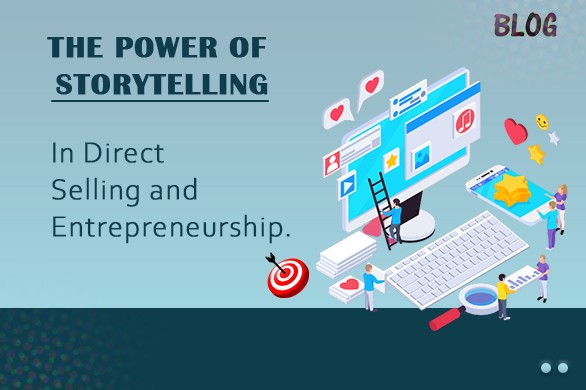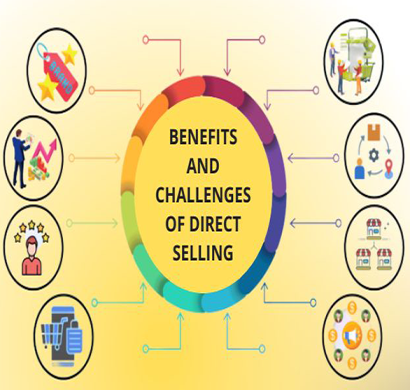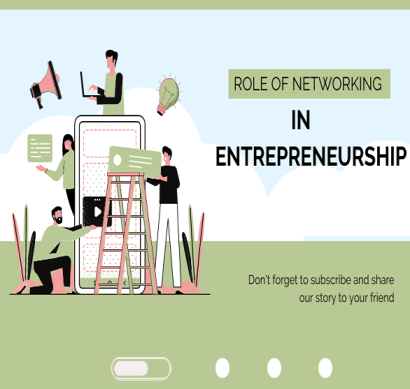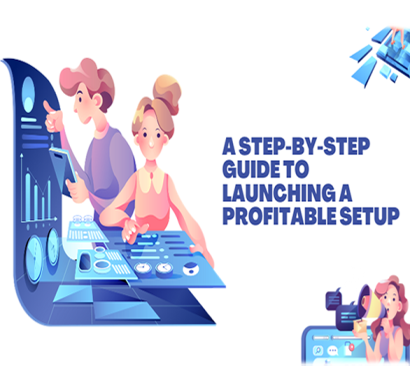
The power of storytelling in direct selling and entrepreneurship
As a direct seller or entrepreneur, you know the importance of effective communication in building relationships and driving business success. But did you know that one of the most powerful communication tools you have at your disposal is storytelling? Whether you're sharing your own personal story, the story of your company, or the stories of your satisfied customers, the power of storytelling can help you connect with your audience, build trust, and ultimately drive sales. In this article, we'll explore the power of storytelling in direct selling and entrepreneurship, and provide some tips for crafting compelling and effective stories.
Why Storytelling Works
From the earliest days of human civilization, storytelling has been a powerful tool for sharing information, building relationships, and making sense of the world around us. Today, as we navigate a complex and rapidly changing business landscape, the power of storytelling remains as relevant and effective as ever. Here are just a few reasons why storytelling works:
· Stories are memorable: Unlike dry facts and figures, stories have the power to stick in our minds and be remembered long after they are told. By sharing a compelling and memorable story, you can help your audience remember you, your brand, and your message.
· Stories build trust: When we hear a story that resonates with us, we are more likely to trust the person or brand that is telling it. By sharing your own personal story or the stories of satisfied customers, you can build trust with your audience and establish yourself as a credible and trustworthy source of information.
· Stories create emotional connections: Stories have the power to evoke emotions, from joy and excitement to fear and sadness. By tapping into your audience's emotions, you can create a powerful connection that can lead to increased engagement and sales.
Crafting Your Story
Now that you understand why storytelling works, it's time to start crafting your own story. Here are some tips to help you get started:
i. Start with your audience: Before you start crafting your story, it's important to understand your audience. Who are they? What are their needs and desires? What challenges are they facing? By understanding your audience, you can tailor your story to their needs and create a connection that resonates with them.
ii. Be authentic: The most compelling stories are those that are authentic and genuine. Don't try to be something you're not or tell a story that isn't true to who you are. Your audience will be able to tell if you're not being genuine, and it will undermine their trust in you.
iii. Keep it simple: When crafting your story, keep it simple and easy to understand. Don't try to include too many details or complicated concepts. Instead, focus on the key messages you want to convey and use simple, straightforward language.
iv. Use visuals: Visuals can be a powerful tool for enhancing your story and making it more memorable. Consider using images or videos to supplement your story and make it more engaging.
v. Make it relevant: Your story should be relevant to your audience and to your business goals. Make sure your story ties back to your brand and your products or services, and that it provides value to your audience.
Sharing Your Story
Once you've crafted your story, it's time to start sharing it with your audience. Here are some tips for effectively sharing your story:
· Choose the right platform: Think about where your audience is most likely to be and choose the right platform to share your story. Whether it's social media, your website, or in-person events, make sure you're reaching your target audience where they are.
· Be consistent: Make sure your story is consistent across all of your marketing channels. This will help build trust with your audience and reinforce your brand messaging.
· Incorporate testimonials: Testimonials from satisfied customers can be a powerful way to reinforce your story and build trust with your audience. Consider incorporating customer testimonials into your storytelling to help illustrate the impact your products or services have had on real people.
· Practice: As with any skill, storytelling takes practice. Take the time to rehearse your story and get comfortable telling it in different settings. The more you practice, the more confident and effective you will become.
Examples of Effective Storytelling in Direct Selling and Entrepreneurship
To help illustrate the power of storytelling in direct selling and entrepreneurship, let's take a look at some examples of companies and individuals who have successfully used storytelling to build their brands and drive sales.
Toms Shoes: Toms Shoes has built its entire brand around a powerful story of giving back. For every pair of shoes purchased, Toms donates a pair to a child in need. This simple yet powerful message has resonated with consumers around the world, and has helped Toms build a loyal following and a successful business.
Mary Kay Cosmetics: Mary Kay Cosmetics founder Mary Kay Ash built her business around the idea of empowering women to achieve their dreams. Her personal story of overcoming obstacles and achieving success has inspired countless women to join the Mary Kay family and build their own successful businesses.
Gary Vaynerchuk: Entrepreneur and social media guru Gary Vaynerchuk has built his brand around the power of storytelling. Through his popular blog and podcast, he shares stories of his own successes and failures, as well as the stories of other successful entrepreneurs. By sharing these stories, Vaynerchuk has built a loyal following and established himself as a leading authority on entrepreneurship and business.
Amazon: Amazon founder Jeff Bezos has used storytelling to communicate his vision for the company and to inspire his employees. In his famous shareholder letters, Bezos shares stories of the company's successes and failures, and uses these stories to reinforce his vision for Amazon's future.
Final words
As a direct seller or entrepreneur, the power of storytelling can be a valuable tool for building your brand, connecting with your audience, and driving sales. By crafting a compelling and authentic story, and effectively sharing it with your audience, you can establish yourself as a credible and trustworthy source of information, build trust and emotional connections, and ultimately drive business success. So don't be afraid to embrace the power of storytelling in your own business, and see how it can help you unlock new opportunities and achieve your goals.





